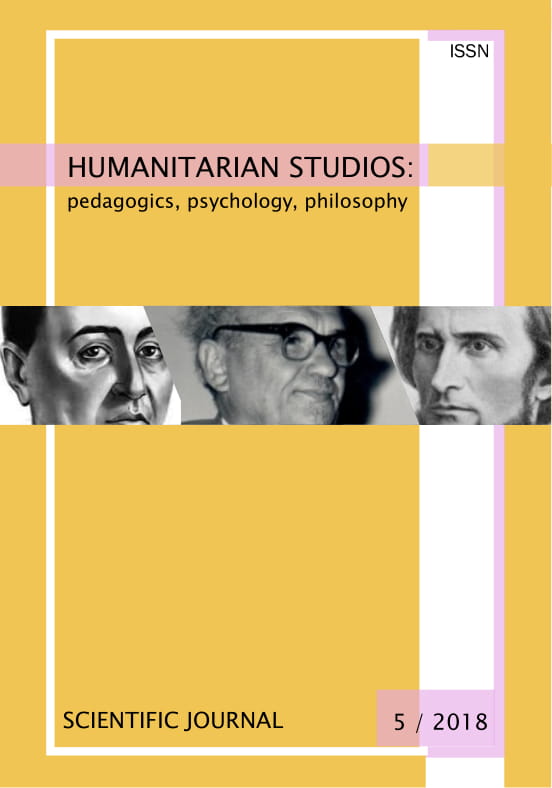Development of school biological education in Ukraine at the modern stage
DOI:
https://doi.org/10.31548/hspedagog2019.02.043Abstract
The main objective of the school biological education of the XXI century should be the formation of a biologically competent creative personality. The constructive aims of biological education are characterized. Constructive goals have their own peculiarities that distinguish them among others in the hierarchical system. First, they are changing and dynamic, and secondly, their definition needs to be taken into account: the situation of the real learning process; the structure of the personality, properties and qualities that are formed in the process of its life; regularities of the process of personality formation; educational, educational, developmental possibilities of educational material; achieved level of knowledge, abilities and qualities of the person. Secondly, the constructive objectives should be distinguished by the precision and specificity of the description, which makes it possible to make an unambiguous conclusion about the degree of their achievement. Biological literacy becomes socially necessary, and the role of the school course of biology in the culture system, the education of respect and love for all living things as a unique and unique can not be underestimated. Recently, the reform of education in Ukraine, its reorientation into the education of a person, which not only possesses a certain amount of knowledge, skills, skills and methods of activity, but also will be able to carry out their duties in accordance with modern theoretical achievements, world requirements and standards of a certain branch. Biological knowledge is an important element of the culture of an educated person. Most of the problems that will be solved by society in the 21st century are closely linked to biology: overpopulation of the Earth, the spread of new infectious diseases, the use of genetically modified products and the use of biotechnology in humans, environmental pollution, and reduction of biodiversity. According to the Concept of Biological Education at the 12-year school, the possession of biological knowledge must become an element of the culture of a modern person. Biological science has a great probability and is capable of shaping the scientific consciousness of participants in the study of various biological objects, processes and phenomena. The content of the educational subject "Biology" justifies the awareness of participants in the system of general values, understanding their value throughout life and life of society, and also forms a humane attitude to life. The biology reflects the ecological, culturological, valeological approach.References
Korshevnyuk T. (2015) Zmist shkilʹnoyi biolohichnoyi osvity v konteksti biolohichnoyi nauky [Content of School Biological Education in the Context of Biological Science]. Biolohiya i khimiya v ridniy shkoli. № 1 (38). 42.
Tsili ta zavdannya shkilʹnoyi biolohichnoyi osvity [Goals and objectives of school biological education]. Available at: http://lib.mdpu.org.ua/e-book/biologiya/biologiya.files/Page385.htm
Mehem Olesya, Kuzʹmenko Lyudmyla. Evolyutsiya zmistu shkilʹnoho kursu biolohiyi v zahalʹnoosvitnikh navchalʹnykh zakladakh Ukrayiny [Evolution of the content of the school biology course in general educational institutions of Ukraine]. Available at: file:///C:/Documents%20and%20Settings/%D0%A2%D0%B0%D0%BD%D1%8F/%D0%A0%D0%B0%D0%B1%D0%BE%D1%87%D0%B8%D0%B9%20%D1%81%D1%82%D0%BE%D0%BB/%D1%81%20%D0%BF%D0%BE%D1%87%D1%82%D1%8B/Mir_2016_10_11.pdf
Antropova O.V. Metodychni rekomendatsiyi shchodo vykladannya biolohiyi u zahalʹnoosvitnikh navchalʹnykh zakladakh [Methodical recommendations for teaching biology in general education institutions]. Available at: https://zosh5.org.ua/sites/default/files/biology.doc
Downloads
Published
Issue
Section
License
Relationship between right holders and users shall be governed by the terms of the license Creative Commons Attribution – non-commercial – Distribution On Same Conditions 4.0 international (CC BY-NC-SA 4.0):https://creativecommons.org/licenses/by-nc-sa/4.0/deed.uk
Authors who publish with this journal agree to the following terms:
- Authors retain copyright and grant the journal right of first publication with the work simultaneously licensed under a Creative Commons Attribution License that allows others to share the work with an acknowledgement of the work's authorship and initial publication in this journal.
- Authors are able to enter into separate, additional contractual arrangements for the non-exclusive distribution of the journal's published version of the work (e.g., post it to an institutional repository or publish it in a book), with an acknowledgement of its initial publication in this journal.
- Authors are permitted and encouraged to post their work online (e.g., in institutional repositories or on their website) prior to and during the submission process, as it can lead to productive exchanges, as well as earlier and greater citation of published work (See The Effect of Open Access).

